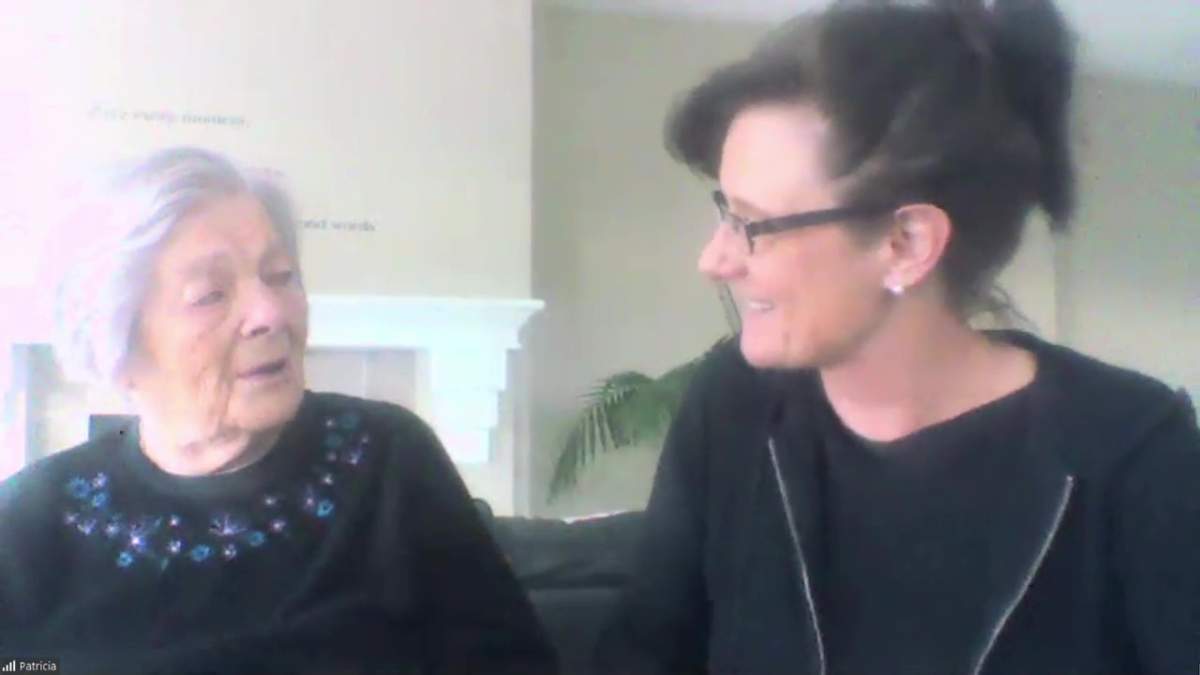The stress of the COVID-19 pandemic is funneling down the line and adding to the burden on Albertans who provide care to loved ones, according to a recent survey.

While the extra burdens on the health-care system and workers are being felt as COVID-19 hit especially hard on long-term care homes, those who care for seniors in their own homes are beginning to suffer the mental health consequences from the pandemic.
According to a recent survey by University of Alberta researchers for Caregivers Alberta, since the pandemic began those who are taking care of loved ones are not only feeling more stress, but they also are not able to provide the same level of care.
“When the pandemic broke, we knew already that this vulnerable population of family caregivers was at risk,” said Dr. Jasneet Parmar, an associate professor at the University of Alberta’s Department of Family Medicine.
“Because it was only natural. As the pandemic restrictions were put into place that the family caregivers would be expected to take on more care.”

Parmar said for many caregivers, they spend from morning until night providing for family members.
“It’s like having more than two full time jobs,” she said.
With pandemic restrictions, she said it also created a situation where there are fewer support services available — and less opportunity for interactions with other family members.

Get weekly health news
“There was a huge reduction of services,” she said. “We saw decompensation in these people who actually needed additional care.
“We’re calling it a perfect storm. Of course, most of the care fell to the family members.”
The survey found that stress was rising rapidly since the COVID-19 pandemic began — with 62 per cent of respondents “not sleeping well,” 57 per cent saying they have “not been able to take a break” and 79 per cent of caregivers saying that they are “feeling more frustrated.”
Pat Taylor has been taking care of her 94-year-old mom Theresa for nearly 10 years after she was hit by a truck.
The accident left Theresa with frontal lobe damage, extensive physical injuries and she also later received an Alzheimer’s diagnosis.
“At the time, when she was hit… I was just finished my master’s degree and I was just going into my PhD,” Taylor said. “Because of the care that was required instantly, I had to resign from my position and let go of my PhD.
“It was quite a change at the time.”
Taylor says the pandemic has created an isolating situation for both her and her mother. While she used to be able to take Theresa out on outings to socialize, that no longer feels like a safe option.
“It also minimizes the amount of contact she has with real-life people… Family and friends, the availability of those to come and be able to spend time with her.
“For me, I’m isolated. I’m spending the majority of my time with her.”
Those in care homes isolated
For the family members who were providing support to their loved ones in long-term care and supportive living, the pandemic has meant a steep reduction in that option as outbreaks continue at many homes in Alberta.
Eighty-seven per cent of respondents to the survey caring for people in long-term care, and 70 per cent of those caring for people in supportive living, said they believed they were provided fewer hours of care compared to before the pandemic.

Parmar said on top of the reduction in caring for their loved ones, many people are feeling anxiety over the situation itself and the lack of ability to explain to some family members on why they haven’t been able to come.
“The lack of information and knowledge. Not knowing what’s going on,” Parmar said. “Some of these family caregivers (we surveyed), are talking about, ‘Do those residents, particularly ones with dementia, do they think they’ve been abandoned by the families?’
“The worry, the angst, the separation… also has affected family caregivers.”
Caregivers Alberta says nearly one in four Albertans over the age of 15 provide care to a loved one.
The survey was conducted from June to July 2020, with just over 600 Albertans who provide care responding.



Comments
Want to discuss? Please read our Commenting Policy first.